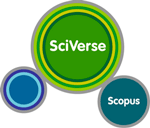Author Identifiers (ID)
Why should a researcher have an Author ID?
Most personal names are not unique, and especially for researchers who publish their scholarly literature online this can cause different problems. Name ambiguities arise from:
- identical names of different researchers
- a large number of common names, especially surnames (e.g. Chan, Smith, Müller)
- inconsistent name formats
- legal name changes
- cultural differences in the position of surnames
- compound or hyphenated names
An identifier helps to solve the problem of author ambiguity and makes it easier to distinguish authors of publications from each other. But there are even more advantages to creating an Author ID:
- makes it easier to get credit for scientific work.
- simplifies the grant submission workflow for funding organizations and makes tracking the output of the research that they funded easier.
- eases the tracking of achievements of members of scholarly societies.
- helps institutions to collect, display and evaluate the research activities of their faculty.
- makes (electronic) paperwork much easier. Personal details need not be filled out in electronic form since researchers can simply use their Author ID.
Which Author IDs exist?

With more than 10 mio registrations, ORCID iD is the most widely used author ID worldwide. It is run by a non-profit organization Open Researcher Contributor Identification Initiative and provides researchers with a unique, persistent author ID. Currently, ORCID has more than 1000 member organizations.
The greatest benefits of the ORCID iD are that researchers are attributed correctly to their research, grants and publications, which significantly increases visibility and transparency. Moreover, ORCID iD is mandatory for grant applications at FWF, Wellcome Trust, for publishing in over 60 different journals including PLoS, IEEE, Science, Springer Nature, RSC or IOP. It is also recommended for ERC funds and included in several repositories like Zenodo, Dryad or our IST Research Explorer. Several journals are using ORCID for the peer review process, such as SAGE Publishing, F1000, eJournalPress or AGU.
In order to get an ORCID iD you need to register online. To do so, go to the ORCID website http://orcid.org/ where you only need to go through three small steps to register. Once registered, you can link your ID to other Author IDs such as ResearcherID or Scopus Author ID. Another big advantage of ORCID iD is data security – you can choose between different data visibility settings and can easily change them.

ResearcherID is a feature of the Web of Knowledge database. It connects all your publications that are listed in the Web of Science to your personal profile. You can also be connected with other Author IDs, such as ORCID.
To create a ResearcherID you need to register on the website http://www.researcherid.com/SelfRegistration.action. After filling out the form and submitting the personal details, an ID and a webpage will be provided. The webpage can be used as a link to the personal profile.

A Scopus Author ID assigns researchers with a unique number and makes it possible to group together their documents. It is possible to assign variants of the author’s name to one single profile. This helps to connect an author to their work even if cited in different ways.
Scopus automatically creates an Author ID for you when you publish in a journal that is indexed by the database. It is very easy to link your scholarly publications to ORCID through a direct link on the author detail page.

Creating a Google scholar citation profile enables Google to link all your publications to you (either automatically or reviewed by yourself first). The profile provides information about your name, your research interest, generated citation metrics, and citations
To create a Google scholar citation profile, go to the website http://scholar.google.com/intl/en/scholar/citations.html. You need to have a Google account to create a profile. Sign in to your account and register online for your citation profile. If you set your profile to public, your information can be found in Google scholar when somebody searches for your name.


